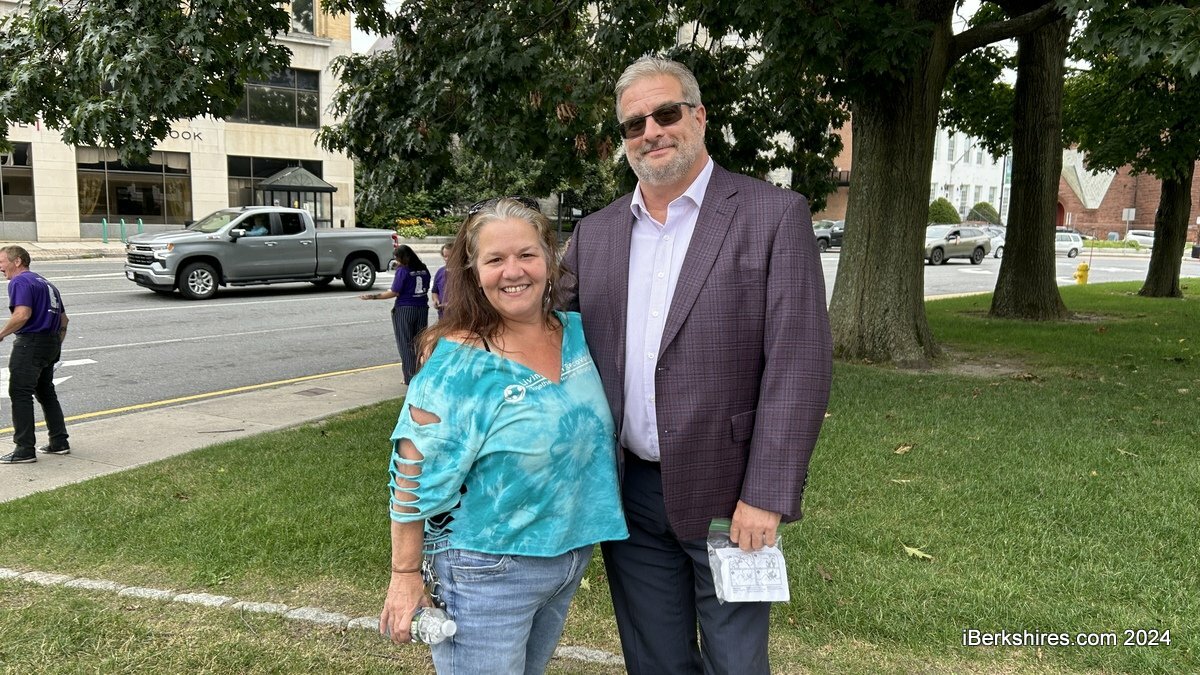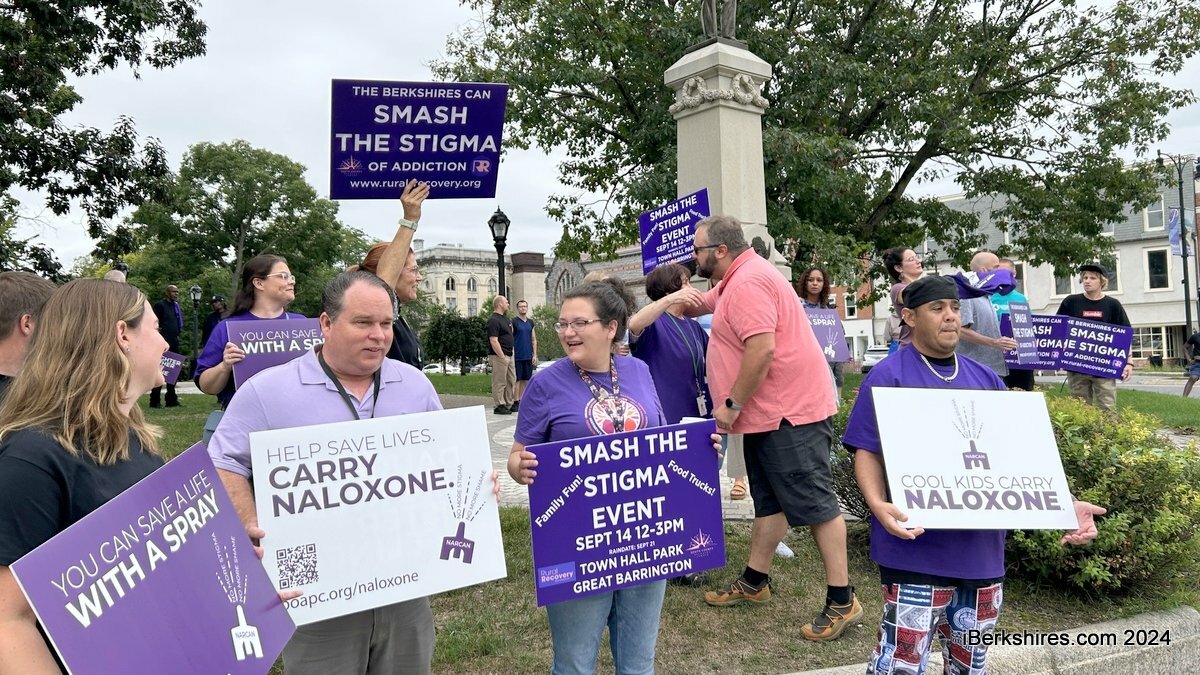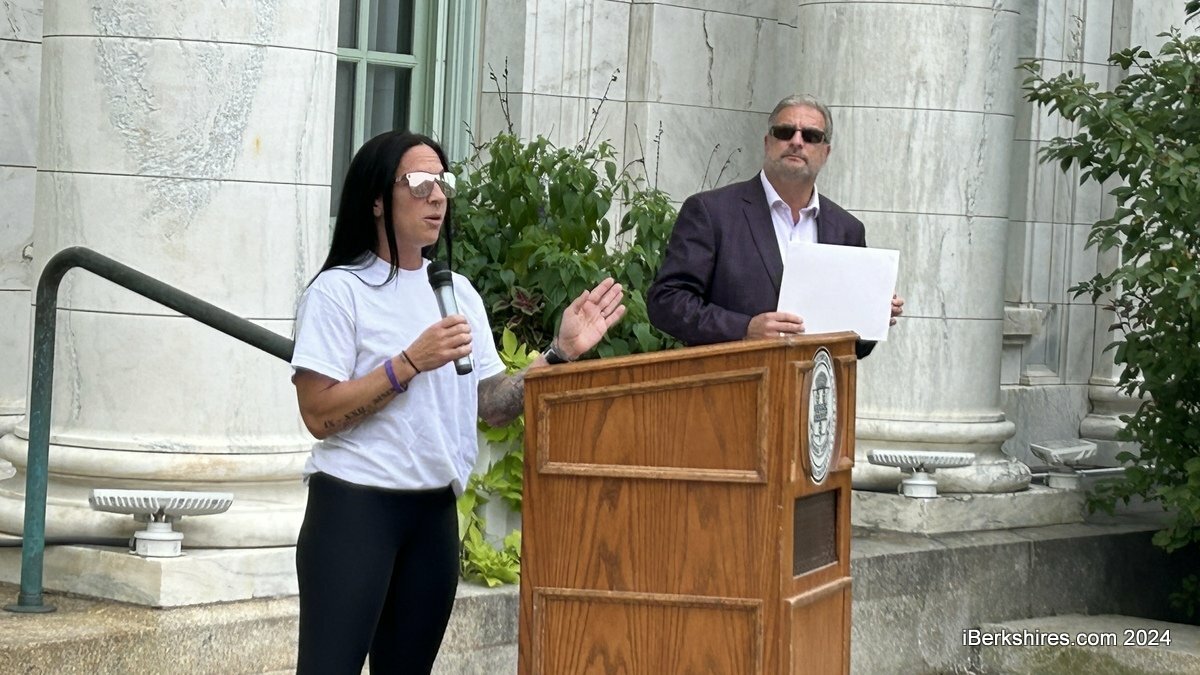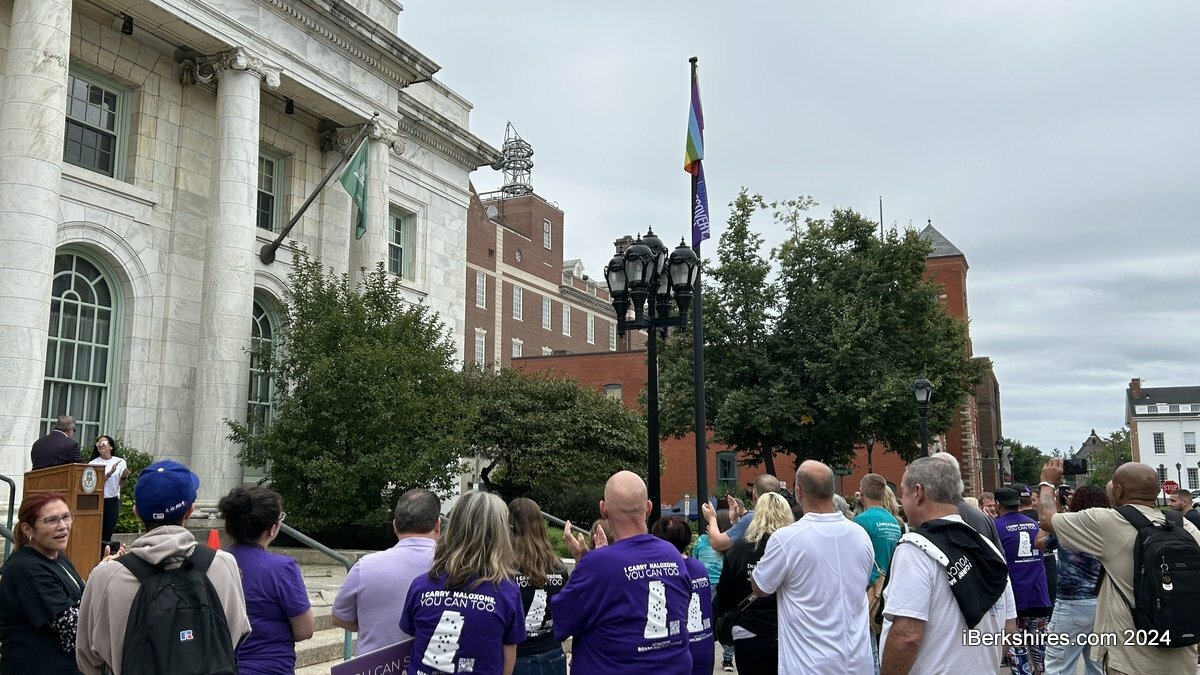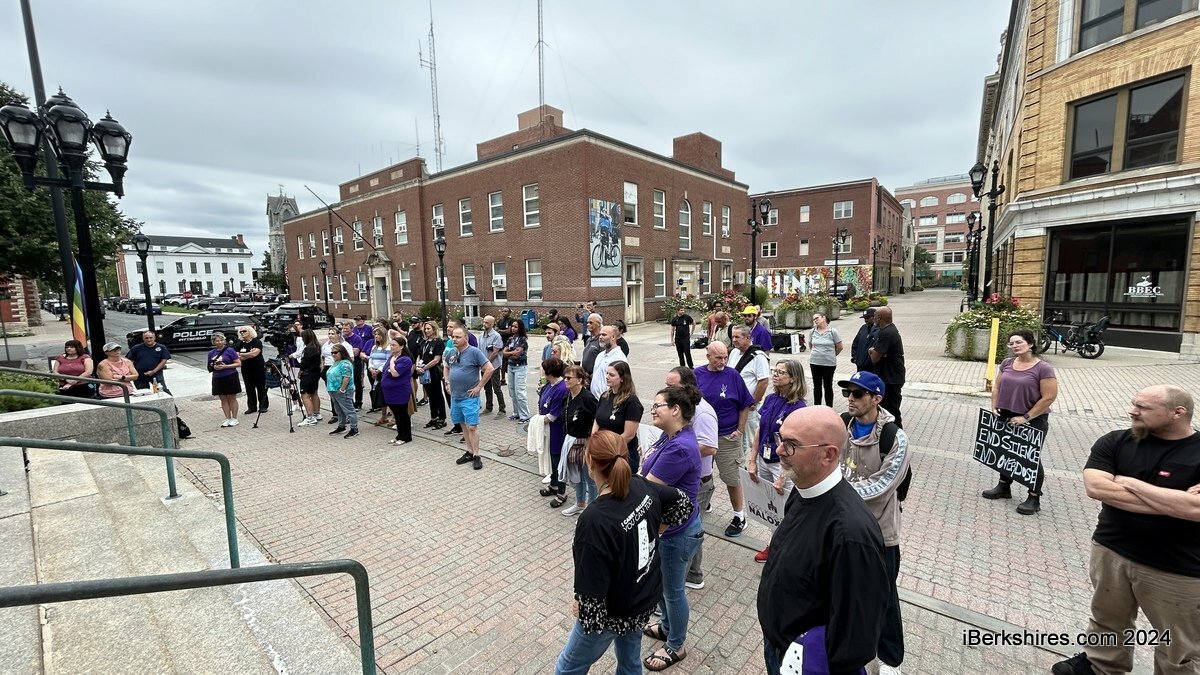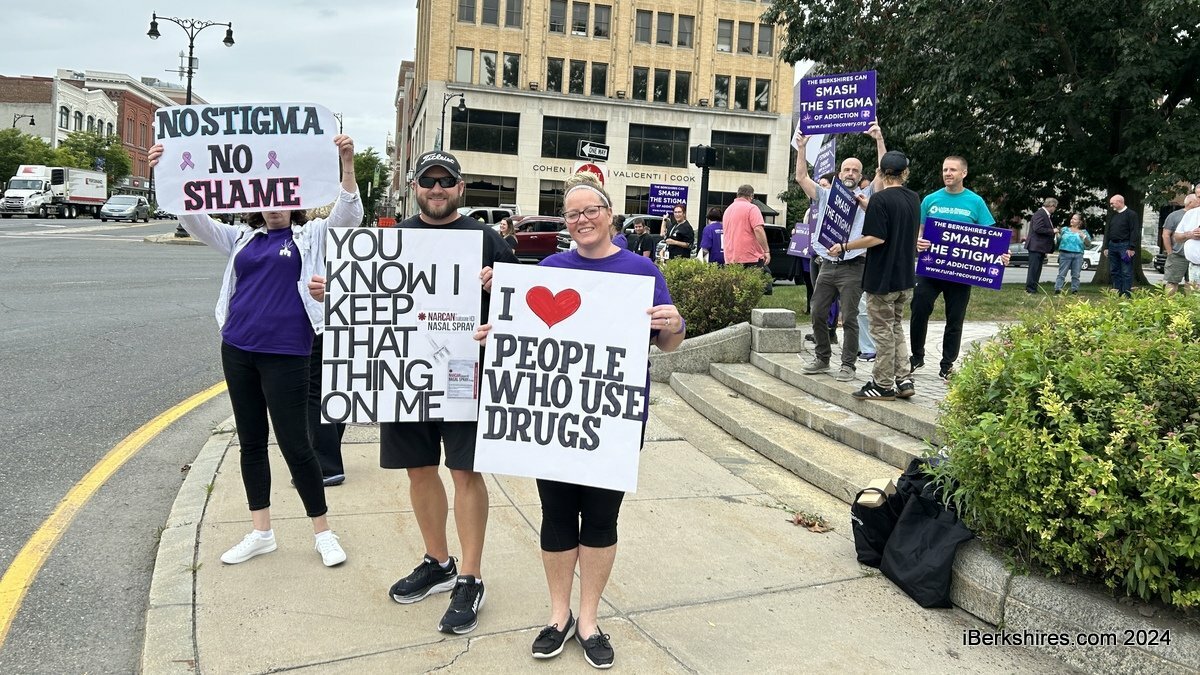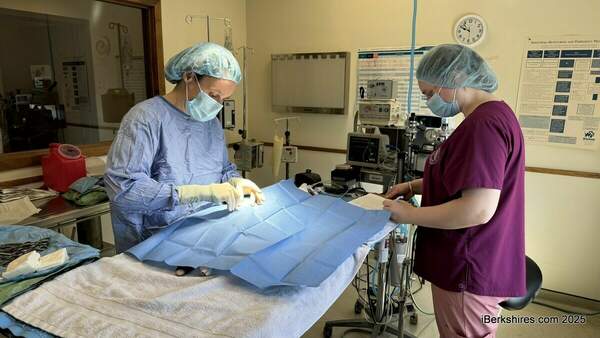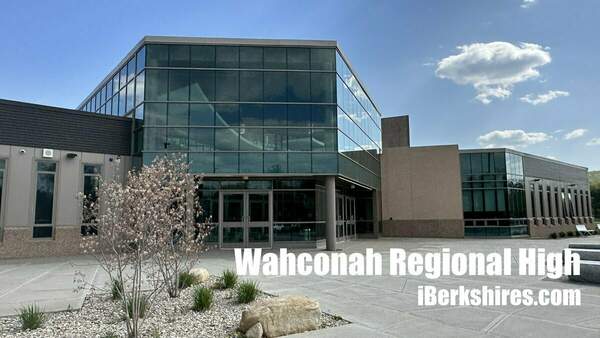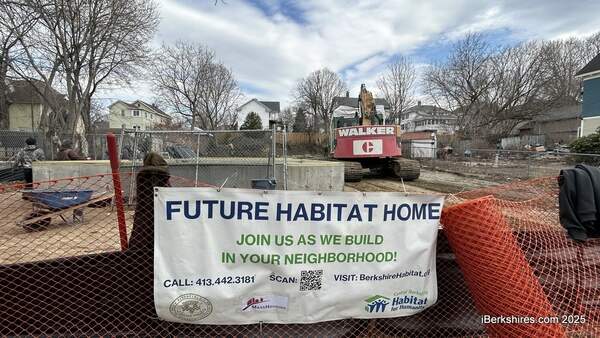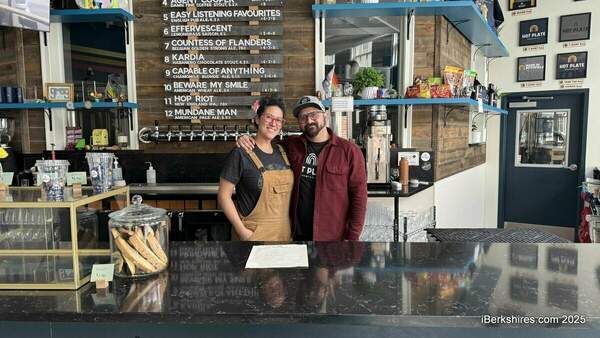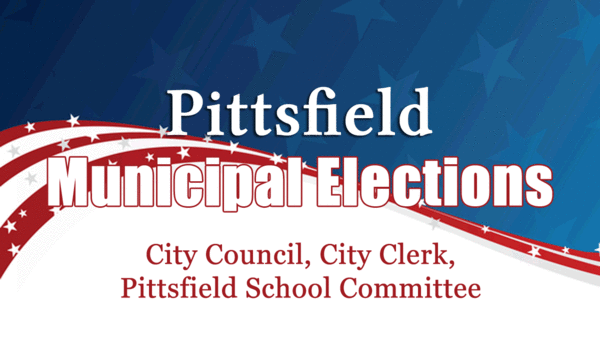Pittsfield Raises Overdose Awareness Flag
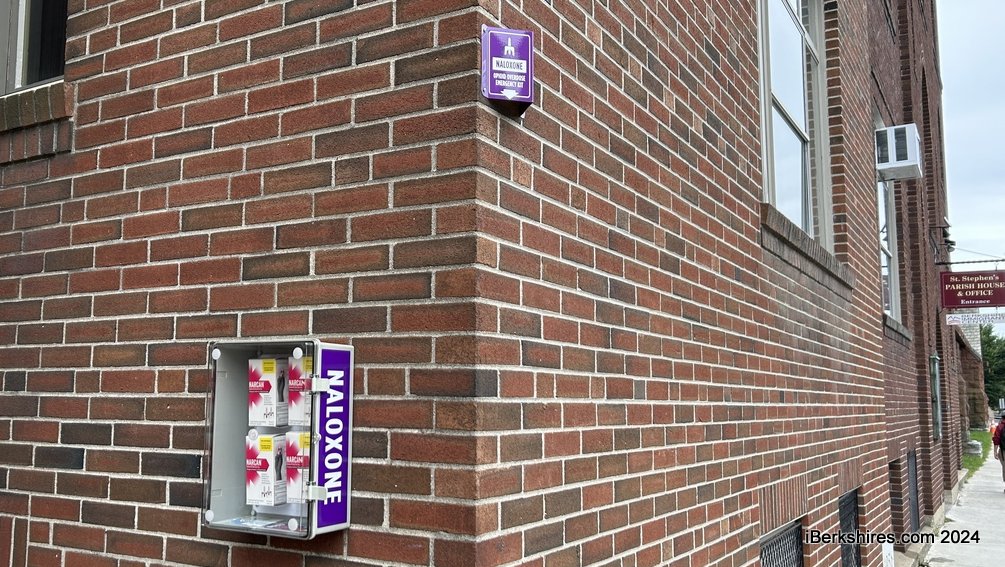
PITTSFIELD, Mass. — An overdose awareness flag was raised in front of City Hall for the first time on Thursday.
Hosted by Berkshire Harm Reduction and the Berkshire Overdose Addiction Prevention Collaborative, around 50 community members marched from Allen Street to Park Square holding signs with phrases such as "Smash the stigma," and "Cool kids carry naloxone."
The county lost 48 people to overdose in 2023 — half from Pittsfield.
Julie MacDonald, program director of Living In Recovery, was teary-eyed when the purple flag rose because it meant that the agencies' hard work was paying off.
"We are getting the word out there more. People are paying attention and they're more likely to listen and what that ultimately means is that we can save more people," she said.
This is in preparation for International Overdose Awareness Day on Aug. 31.
On Saturday, there will be a memorial service at the Common followed by a procession to Park Square to read the names of the lives lost in Berkshire County. A Revel in Recovery celebration with family entertainment will be held at the Common on Sept. 7.
BHR program manager Sarah DeJesus explained that harm reduction aims to prevent overdoses through education and distribution of Narcan or naloxone, adding that "Every, every, everybody" should carry the medication that can reverse an opioid overdose.
The life-saving medicine was on hand for anyone who wanted it and there are various Narcan stations in the downtown area implemented by BHR, which is a program of Berkshire Health Systems.
"I'm thankful that everybody is here to raise awareness about overdoses and just support our community in general," DeJesus said.
Mayor Peter Marchetti hopes to shine a light on substance use disorder and demonstrate the administration's dedication to the cause.
"This is a very serious issue to me and we may agree all the time or not agree all the time, but we're all still rolling up our sleeves to fight and to come up with solutions," he said.
He emphasized that sweeping this under the rug will not make it go away. The mayor is also passionate about changing the stigma of addiction.
"Is there a right path forward to be able to solve the problem? I don't think so," he said.
"I think there's multiple paths forward and some of it is starting with education for people. There's a sign here that says, 'Nice people use drugs' and so there is the stigma that if you're on drugs, you're a bad person. How do you change that one person at a time?"
Marchetti also spoke to the importance of funding for agencies that work with those suffering from addiction and at the same time, understanding that not every person wants help at the moment that people are offering it.
"And that doesn't mean that we give up on them. That means we need to try, try again," he said.
Several members of the Mental Health and Substance Use Disorder Advisory Committee created early this year were present.
The task force's vision is to ensure that all residents have access to proper mental health and substance use disorder care in a judgment-free environment and to strengthen the partnerships among providers. It is expected to collaborate with community stakeholders to ensure that providers have the resources to give individuals and families timely and adequate treatment.
It was one of Marchetti's campaign promises and inaugural members were appointed in April.
The Rev. Michael Denton of United Church of Christ, a member of the committee, explained that it has a clear connection to some of his work.
Many folks who use the South Community Food Pantry struggle with addiction, mental illness, and various forms of health problems, he reported. Both the church and pantry have Narcan boxes and BHR reduction has offered training during service.
Denton explained that part of the committee's work is building relationships with one another. He pointed out that even if some of the folks have known each other from different aspects of community life, they haven't always interacted in this way and it is helpful because if you don't have good relationships, you can't come up with good solutions.
"So from that, there is some different foci of the work. I think that the original hope was that there would be sort of one focus, maybe one method but we really started to figure out that it's our multiple approaches that are needed from our multiple directions," he said.
"And so how we can support each other when that's important, how we can supplement and complement each other when that's important too."
Tags: addiction recovery, overdose,

